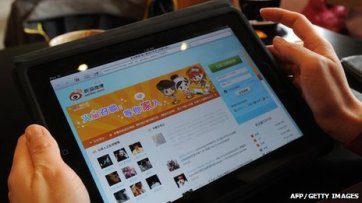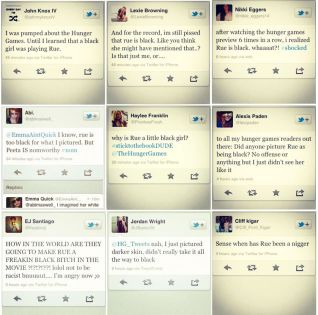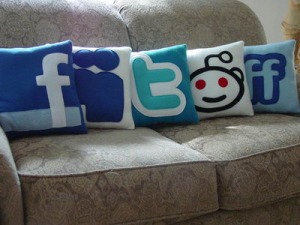People always surrounded with work. Because of this busy life, people are buried in job, business or housework. We tired. We exhausted. But, we still need energy for a new day! We need to relax. And, the Internet brings that perfectly into our life. After a long day at work, we lie down on a soft sofa with the faintly smell of fabric running straight to our nose. Reaching the mobile or tablet, click on the screen, a new world appears! We are chatting with our friends and kissing the lover easily and fast.
We can share anything about our life based on the establishment of social media, including Facebook and Twitter, where people can talk to the other or exchange things (WebWise 2012). People can freely express their feeling and emotion about their day or an event.
When we access to these social sites, we expect to see and hear about good story, which is emotional or full of energy and love (Nelson 2012). That is what make people feel relax and entertained. You also share the good moments to your friends that make you feel and express yourself (Nelson 2012). These posts can relax a tired day. However, it is life! Nothing can be smoothly happen! We are all struggling to something in our life. One of the best ways to release these oppressions is expressing or telling it to your friends (Scott 2013). And, you can do it easily with the support from the convenient of social media. You can talk or post your angriness on the website in order to share and express your situation to the communities.
Being expressed and released from those angry, you feel more comfortable, right? This motivates you keep going and going on posting or sharing your angriness or disappointed. This leads to a negative effect in your life, because you just keep talking about angriness and how hard your life is. Now, you just keep in your mind the angriness. It raises an alarm in the motivation of social media on expressing angry on the Internet (GL 2013). This has been proved by a study of 70 million posts on Sina Weibo, the China’s Twitter version (Fung 2013).
After conducting the research, Rui Fan and his team pointed out that angry posts or tweets got more attention and response of the users than happy ones. Not only in the China, but also in the U.S, the angry posts had been retweeted more than the others (Fung 2013).
Furthermore, in some cases, the authors of these angry posts also suffered the negative judgments from the publics. There are many examples for this situation. The first example is the chaos of a tweet written by Richard Dawkins, who makes people angry because of his bad performance on Twitter, after tweeting about ‘date rape’ and ‘violent paedophilia’ (Dearden 2014). He had to be involved into a debate with the publics and got lots of disappointment and disagreement from the publics.
Furthermore, not only the authors but somehow the people involved in these angry posts. Rue – a characteristic from the Hunger Games movies series – has to suffer an angry opinion about her skin. The fans are disappointed and yelling and angry at her on the Internet, even a fiction characteristic (Stewart 2012).
As you can see, the Internet is a great place for us to express ourselves and our emotion. However, the free of express motivates the angry in our life. The angry not only harm us but also others’ feeling. Thus, be careful and think twice before sharing the angriness.
Word count: 597
References
De, K 2013, ‘Preventing a Social Media Crisis Takes More Than Governance and Policies’, image, Business 2 Community, 8th February, viewed 7 August 2014, < http://www.business2community.com/social-media/preventing-a-social-media-crisis-takes-more-than-governance-and-policies-0394786#!byrbmQ>.
Dearden, L 2014, ‘Richard Dawkins tweets: ‘Date rape is bad, stranger rape is worse ‘’,The Independent, 29th July, viewed 6 August 2014, <http://www.independent.co.uk/news/people/richard-dawkins-says-date-rape-is-bad-stranger-rape-is-worse-on-twitter-9634572.html>.
Dearden, L 2014, ‘Richard Dawkins tweets: ‘Date rape is bad, stranger rape is worse ‘’, image, The Independent, 29th July, viewed 6 August 2014, <http://www.independent.co.uk/news/people/richard-dawkins-says-date-rape-is-bad-stranger-rape-is-worse-on-twitter-9634572.html>.
Fung, B 2013, ‘The Internet isn’t making us dumb. It’s making us angry.’, The Washington Post, 16th September, viewed 6 August 2014, <http://www.washingtonpost.com/blogs/the-switch/wp/2013/09/16/the-internet-isnt-making-us-dumb-its-making-us-angry/>.
GL 2013, ‘Internet đã hủy hoại chúng ta như thế nào’, Genk, 2nd October, viewed 7 August 2014, <http://genk.vn/kham-pha/internet-da-huy-hoai-chung-ta-nhu-the-nao-20130929165631142.chn>.
Hogenboom, M 2013, ‘Online anger ‘spreads faster than joy’ on Weibo’, image, BBC, 20th September, viewed 7 August 2014, <http://www.bbc.com/news/science-environment-24158675>.
Mia 2013, ‘5 ways to invite people to Like your Business Facebook Page’, image, Lee Media Group, 31st January, viewed 7 August 2014, < http://leemediagroup.com/blog/5-ways-to-invite-people-to-like-your-business-facebook-page/>.
Nelson, A 2012, ‘The Simple Secret of Why People Share Your Content (or don’t share it)’, Social Fresh, 19th November, viewed 5 August 2014, <http://socialfresh.com/sharing-content/>.
Scott, E 2013, ‘Social Support – How to Create Truly Supportive Friendships’, About, 1st May, viewed 6 August 2014, <http://stress.about.com/od/relationships/a/friendskills.htm>.
Stewart, D 2012, ‘Racist Hunger Games Fans Are Very Disappointed’, Jezebel, 26th March, viewed 7 August 2014, <http://jezebel.com/5896408/racist-hunger-games-fans-dont-care-how-much-money-the-movie-made>.
Stewart, D 2012, ‘Racist Hunger Games Fans Are Very Disappointed’, image, Jezebel, 26th March, viewed 7 August 2014, <http://jezebel.com/5896408/racist-hunger-games-fans-dont-care-how-much-money-the-movie-made>.
WebWise 2012, ‘What are social networking sites?’, BBC WebWise, 10th October, viewed 6 August 2014, <http://www.bbc.co.uk/webwise/guides/about-social-networking>.











